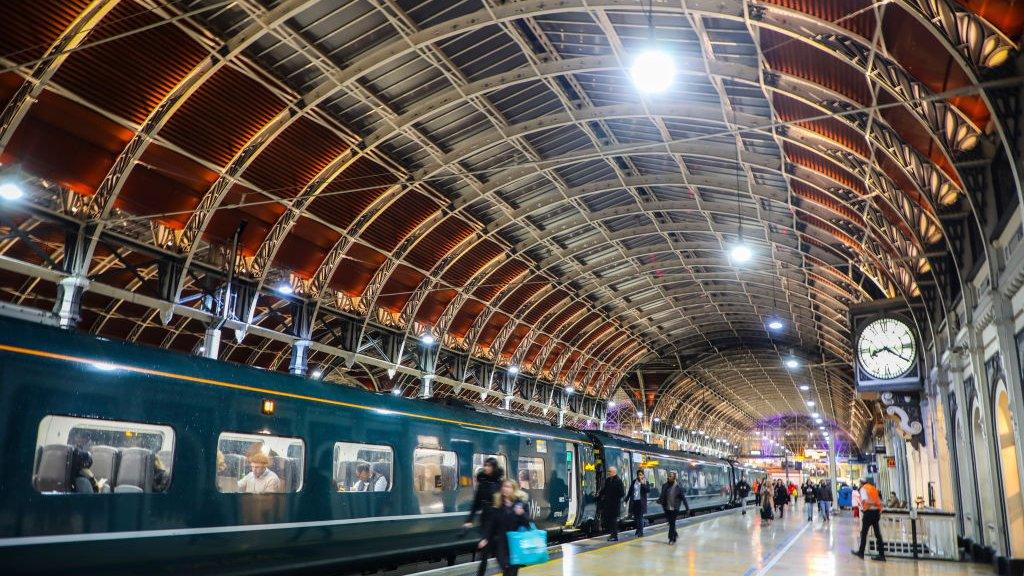Train emergency alarm delays rise as more passengers call for help
- Published
- comments
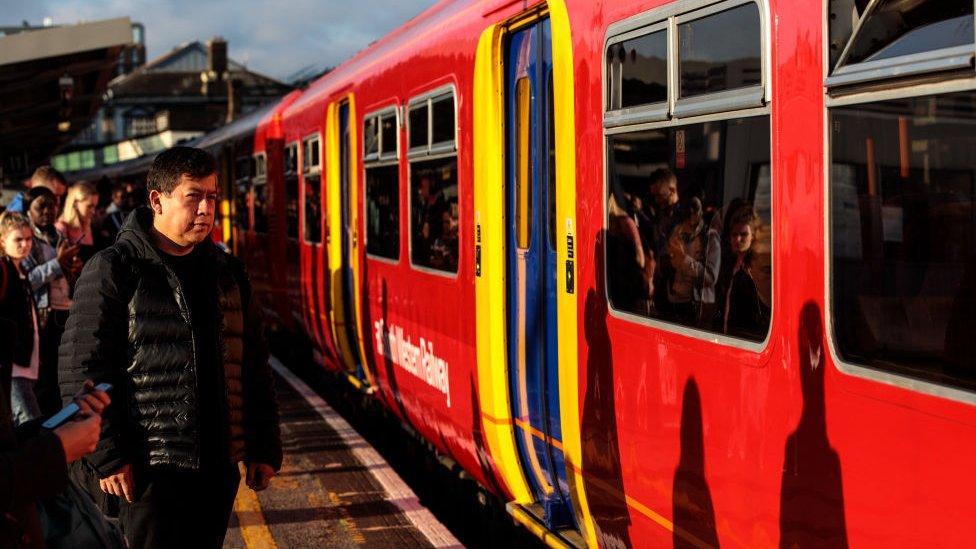
Alarm systems are fitted on trains for passengers to contact staff, open doors or stop trains
More passengers are using emergency alarm systems on trains, causing increasing delays, figures show.
Rail users said crowded trains and a lack of help for disabled people would lead to alarms being triggered.
Delays caused by alarms, some of which can stop trains, rose by a third between 2017 and 2019, according to the Rail Delivery Group (RDG).
It said passengers should read onboard instructions, ask staff and "use common sense" before reaching for alarms.
In the year to August 2019 passenger communication, door and emergency alarms were activated on trains more than 8,500 times, causing delays totalling more than 174,000 minutes.
This compared with just over 7,000 activations causing just under 132,000 minutes of delay in the year to August 2017.
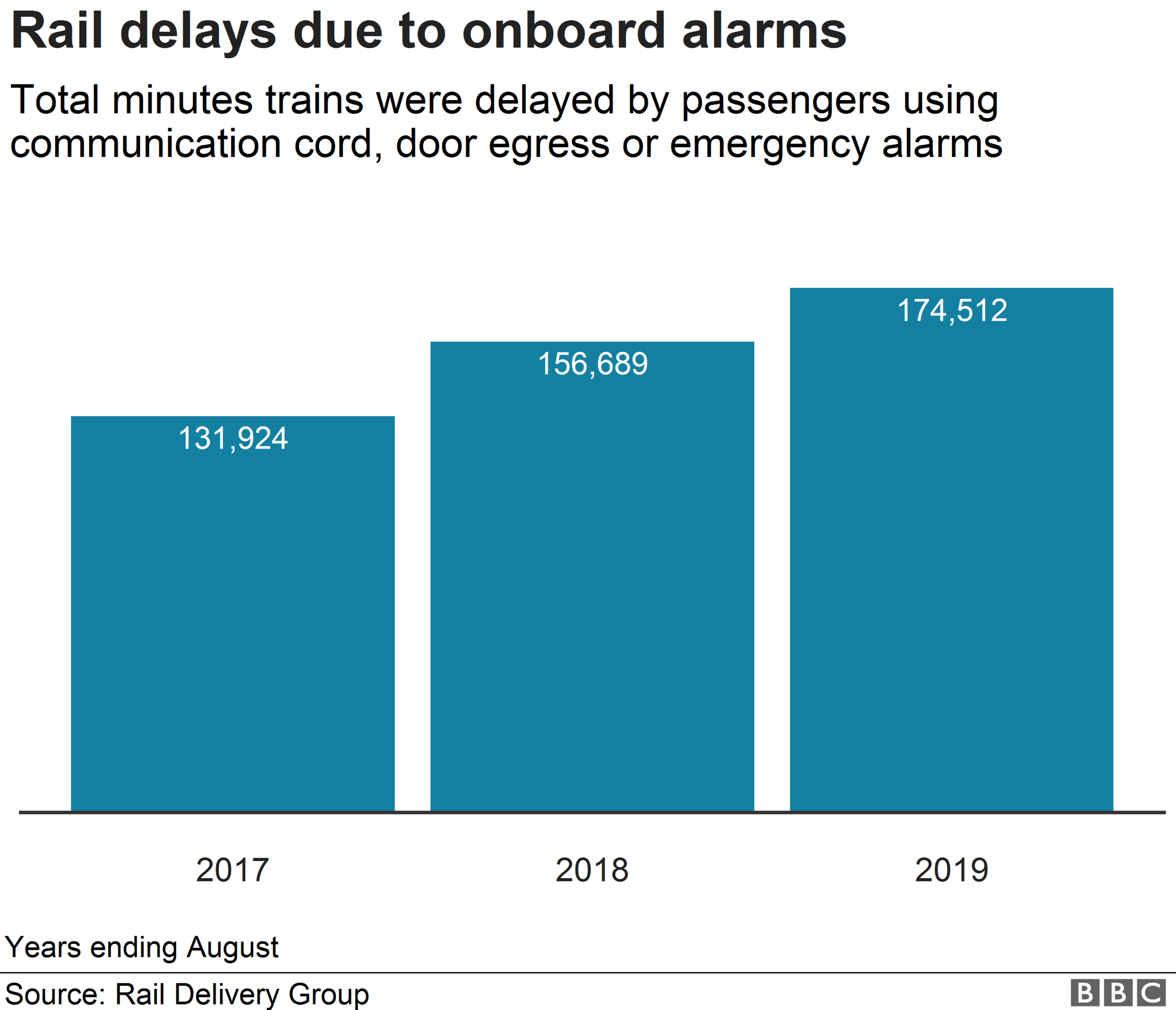
'Lack of space to breathe'
As Amit Champaneri and other passengers struggled with a "lack of space to breathe" on a crowded train, someone triggered the emergency alarm.
The 36-year-old was travelling on a South Western Railway service between Reading and London that was busier than usual because of strike action during December 2019.
"The train was so full of passengers, it was probably pulled out of desperation due to lack of space to breathe," he said.
"I heard a passenger say they could not move because others were forcing themselves onto the train."

Amit Champaneri said there was "lack of space to breathe" on his packed train
Mr Champaneri said it may have been pressed accidentally, as passengers were pushed up against the sides of the carriage.
The service was delayed by about 28 minutes as a result of the alarm, he said.
A South Western Railway spokesman said services were "very busy and uncomfortable" during the strike action, which saw the company cut its usual timetable.
"We have made significant changes to our timetable to tackle the issue of crowding on peak services over the last year," the spokesman said.
The company added that emergency alarms should be used to alert the guard and driver of an "emergency incident" on a train.

Sam Jennings was told she should use the emergency alarm if she cannot get off a train
Sam Jennings, from Streatham, said having multiple sclerosis and using a wheelchair may force her to use the emergency alarm, as she is frequently unable to get off trains because rail staff have not met her with a ramp.
In December 2019, the 41-year-old posted a video of herself on social media blocking the doors of a Southern rail service at London Bridge because there was no-one there to assist her.
"I can't get safely off the train without help; it would be dangerous for me to do so," she said.

You may also be interested in:

Ms Jennings added: "If I can't get off at my stop - that's an emergency for me."
Southern Rail's customer services director, Chris Fowler, said: "Our support for Ms Jennings has not been good enough.
"We have apologised to her in person and we are urgently investigating exactly what went wrong so that we can put improvements in place as quickly as possible."
Mr Fowler added that Ms Jennings would have been justified in using the emergency alarm, adding the company "generally trusted passengers' judgement" in using them.
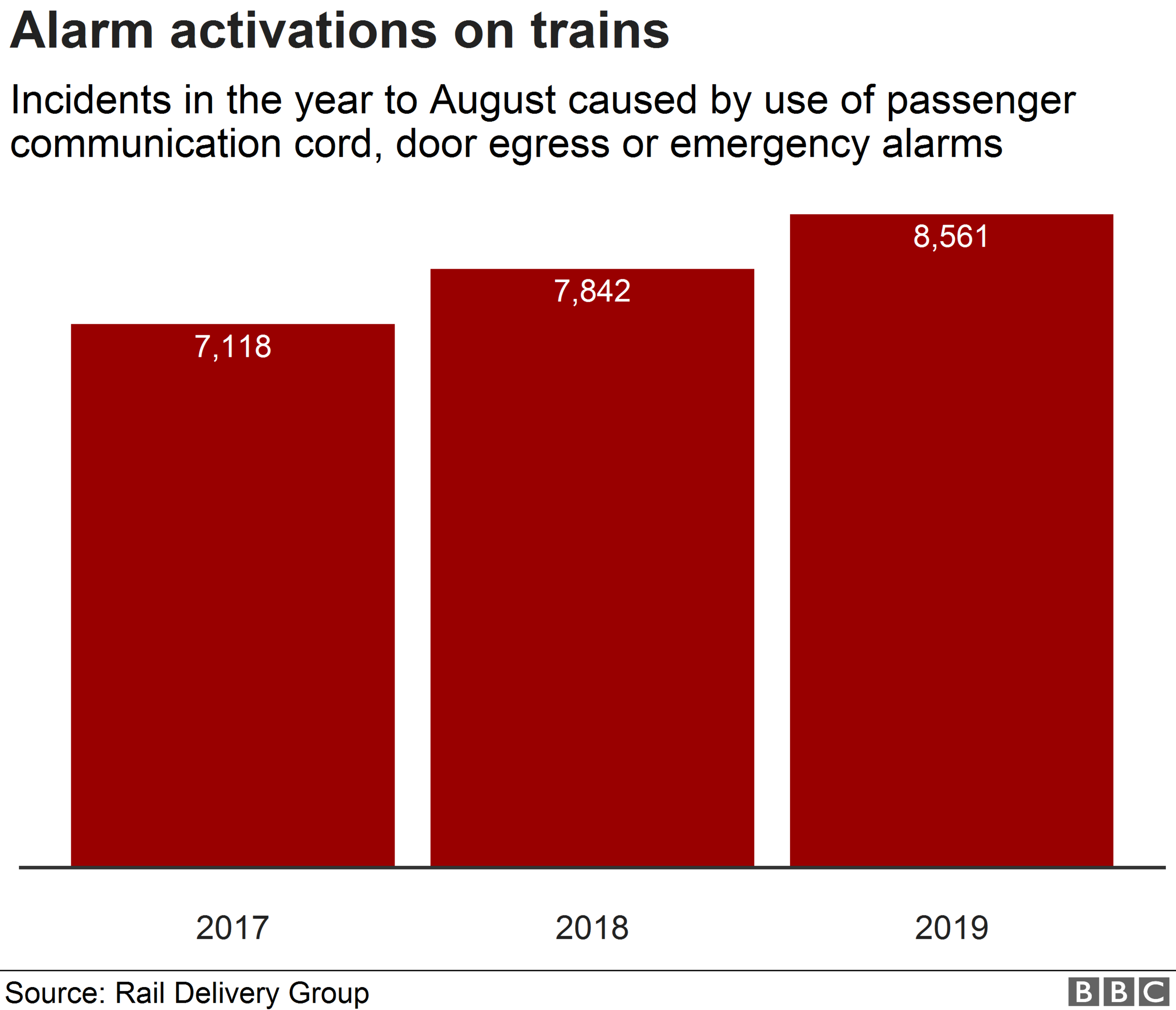
Many trains are fitted with communication systems for passengers to contact the driver, but some emergency alarms automatically apply the brakes.
Anthony Smith, from passenger watchdog Transport Focus, said punctuality was the biggest issue for rail customers and the increase in emergency alarms was "concerning".
"If [passengers] aren't certain what the alarms are for, then the industry needs to review what more information should be given to them on the circumstances in which using them is appropriate," he added.
Susie Homan, RDG's director of planning, engineering and operations, said: "Reducing the misuse of emergency alarms is a small but significant step we can all take to tackle delays and encourage passengers to consult onboard emergency instructions, ask a member of staff and use common sense before reaching for the alarm."
The increase has also come alongside rising numbers of rail journeys. Official figures show, external there were 1.8 billion passenger journeys in Great Britain in the year to March 2019, double the number recorded 20 years ago.
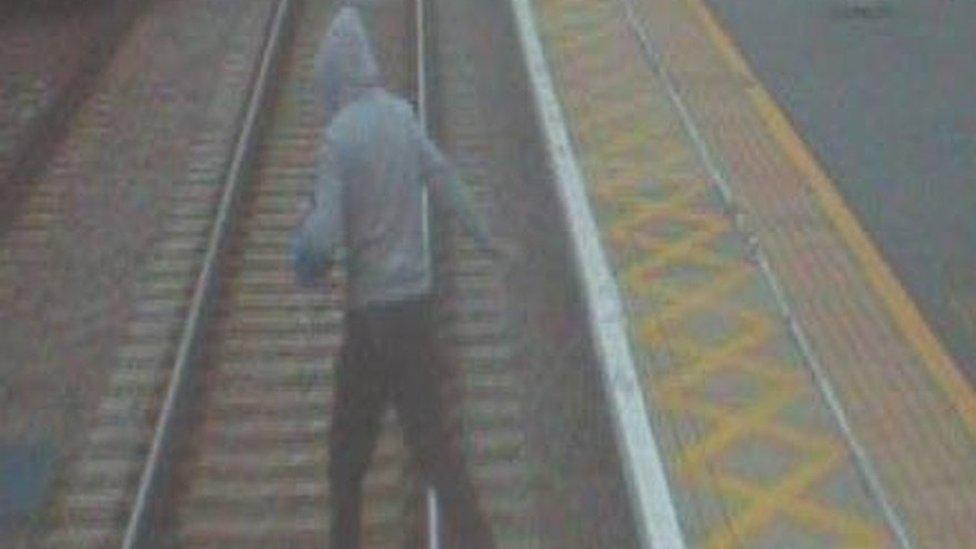
A Greater Anglia spokesman said climbing on to railways tracks was both dangerous and illegal
Rail operator Greater Anglia said many emergency alarms were triggered by "malicious acts" involving "hoaxes or non-emergencies".
These included passengers missing stops or wanting to get off trains, with one opening the doors of a train at Broxbourne station, Hertfordshire, and climbing on to the tracks.
"Not only is this very dangerous, it's also illegal," the company added.
Greater Anglia said it would look to prosecute people who were caught misusing the alarms, saying: "Anyone prosecuted could end up with a £1,000 fine."
As well as delays to a service, rail companies say stopping a train in a non-emergency could also disrupt other services on the same line, and even delay medical assistance reaching a passenger if they were taken ill.
When should I trigger an alarm?
Advice for using alarm systems on trains varies between operators.
Transport for London recommends its passengers use an alarm if they see something on the train "which could cause danger to others", such as a fire or malfunctioning doors.
Some train operating companies, including Greater Anglia, say if someone becomes ill they should stay on the train until the next stop and in an emergency it is better to dial 999 for an ambulance to meet them at the station than stop the train.
On long distances services, with a while between scheduled stops, onboard staff can arrange for a train to stop at the nearest station in an emergency.
- Published21 January 2020
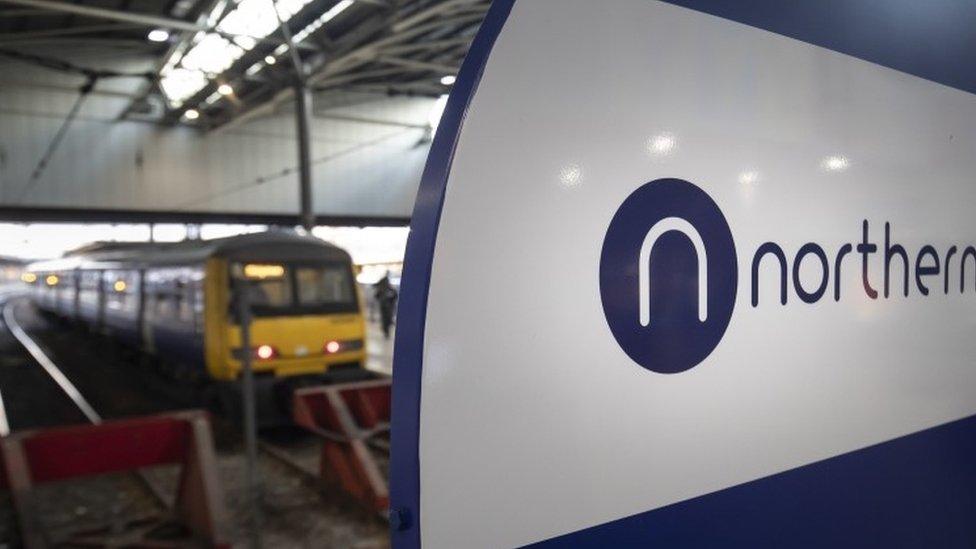
- Published18 January 2020
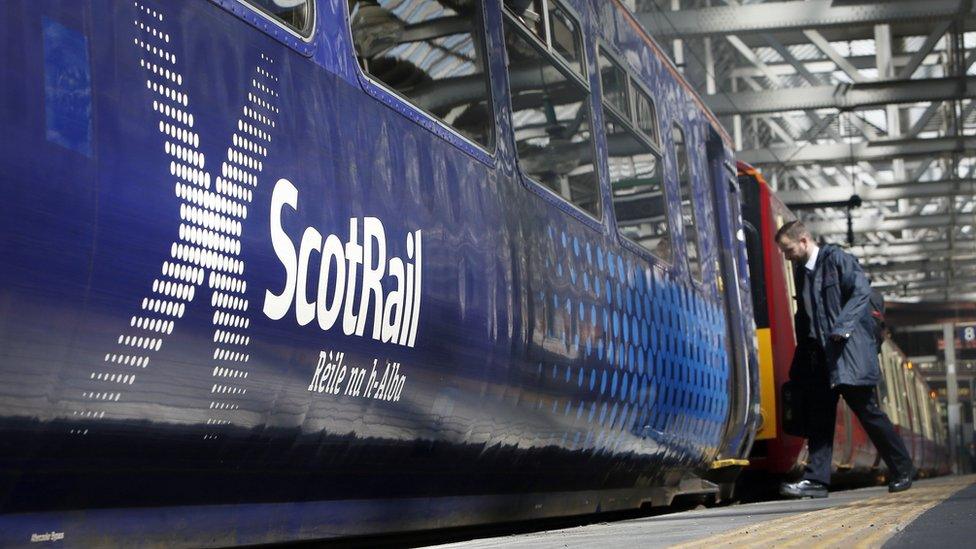
- Published14 January 2020
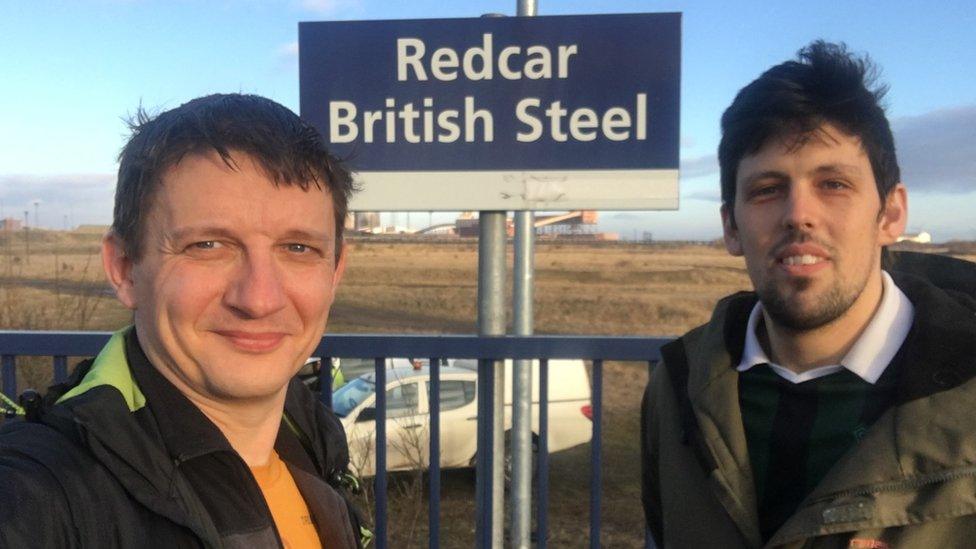
- Published14 January 2020
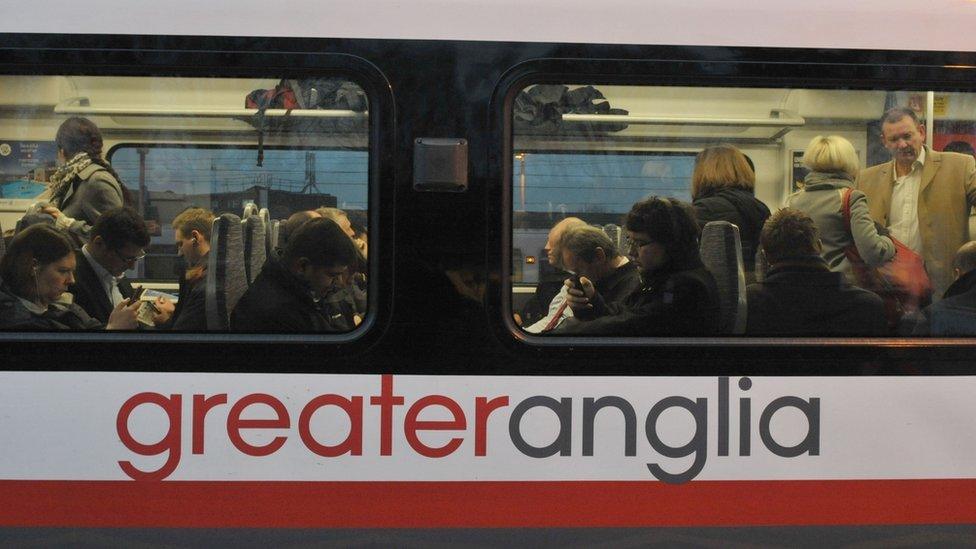
- Published11 January 2020
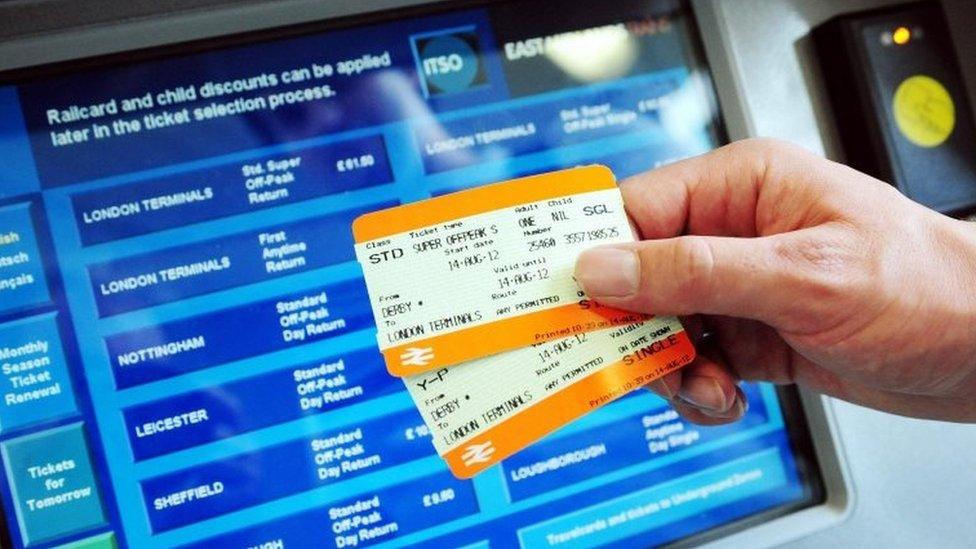
- Published9 January 2020
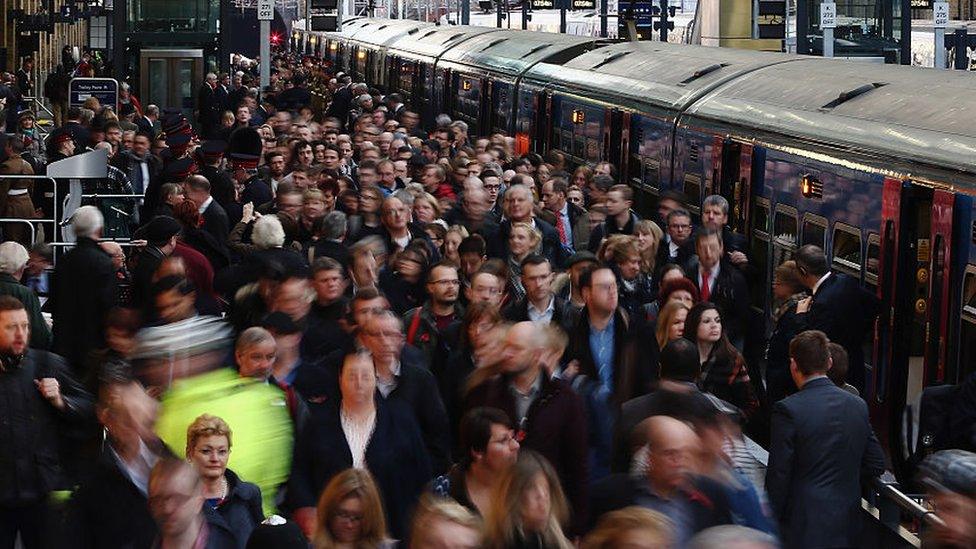
- Published8 January 2020
